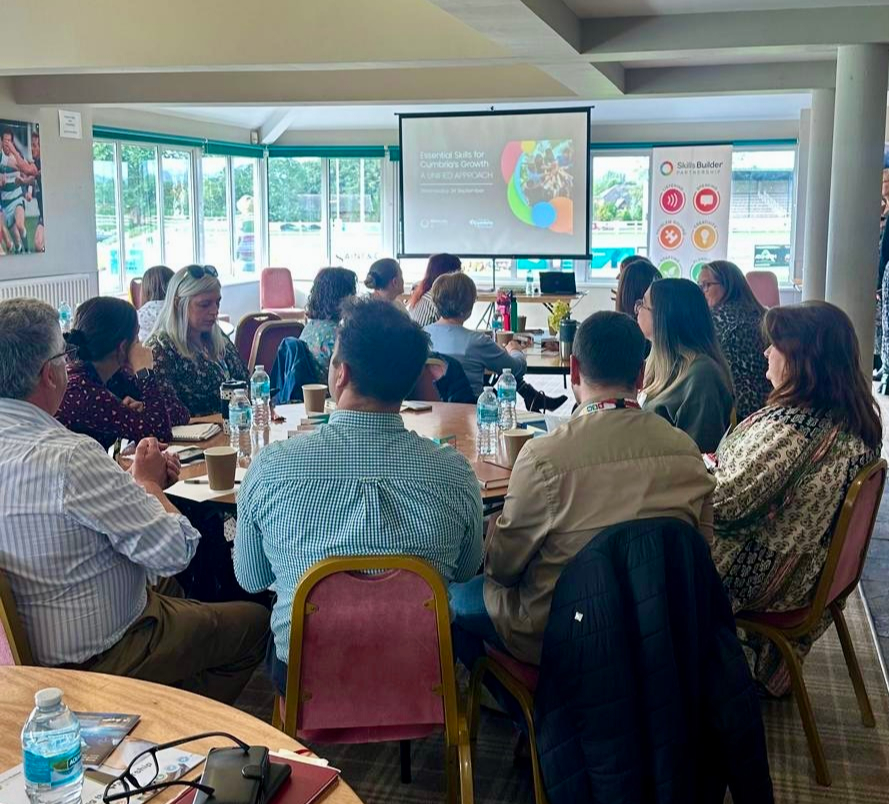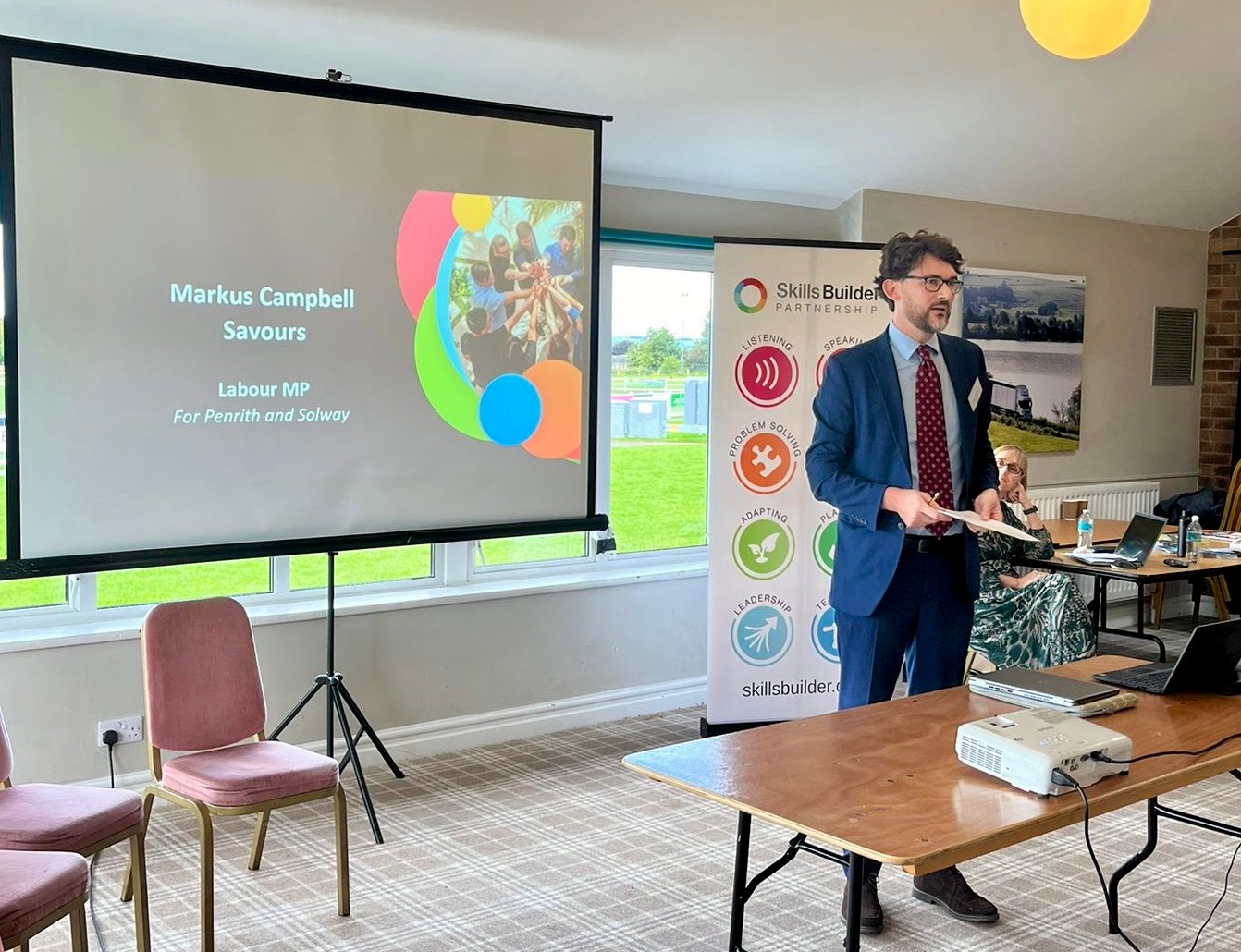On Wednesday 24 September, we brought together over 30 organisations at Penrith Rugby Club for Essential Skills for Cumbria’s Growth: A Unified Approach. This included employers, educators and local leaders from across the region. The event, delivered in collaboration with Enterprising Cumbria, set out to explore how the region can better unite to support young people to understand and build skills essential for their future, and ensure this happens consistently across education and employment.
Cumbria has a proud industrial heritage and is home to many employers in energy, engineering, and beyond. Like many regions, it faces the challenge of equipping young people with the skills they need and building stronger links between education and employment.
The aims were clear: to unify Cumbria educators and employers with a shared language for skills development, ensure young people are equipped for the workplace, and support businesses in strengthening their future workforce.

One of the key themes that emerged from the day was that every organisation, big or small, has a starting point for developing essential skills. It is not always easy to know where to begin. Choosing a framework, having the right expertise to guide the process, or even identifying top priorities can all feel like stumbling blocks.
That is why the Universal Framework and the Skills Builder Impact Levels resonated so strongly with employers in the room. They offer both structure and clarity, showing organisations how to get started, and what progression can look like.
Real-world examples brought this to life: Sellafield and MissionCX, two organisations very different in size and scope, are both embedding the Framework into their outreach activity. By aligning their approaches with the Impact Levels, they are able to demonstrate tangible outcomes and benchmark their progress in a way that others can learn from.
The takeaway for many employers was that you don’t need to be at an advanced stage to make a difference. Even simple first steps, like using the shared language of the eight essential skills or adding icons and reflective questions into materials, can set the foundation for lasting impact.
Educators spoke about the impact of using the Framework in schools and colleges, providing structure, consistency and simplicity when developing essential skills. During a panel discussion involving local schools and colleges, school leaders reflected on how working with Skills Builder has developed staff confidence and helped learners better identify their next steps
Simon Richardson, Vice Principal at Energy Coast UTC, shared that his learners often had the skills employers were looking for but lacked the language to describe them in interviews. Since adopting the Framework, his learners are not only more confident but also better prepared to communicate their strengths when meeting employers.
Rachel Mirfin from Gen2 echoed this, saying:
“It’s been really great to share positivity around helping our young people progress using essential skills.”
Markus Campbell-Savours, MP for Penrith and Solway, drew on his own experience as an apprentice. He noted that while technical skills remain vital, they are most effective when combined with the ability to collaborate, communicate, and solve problems.
As he put it:
“The conversation has helpfully moved from hard, technical skills to these essential skills. Let’s create a time where workers not only have the hard skills but are able to interact effectively at a human level.”

For regional leaders like Cath Dutton from Enterprising Cumbria, the discussions also shone a light on the importance of making work experience more meaningful.
She challenged employers to move beyond simply offering placements and instead ensure that young people leave with a clear sense of the skills they have developed. It was a call that echoed the wider theme of the day: creating responsibility, confidence, and real outcomes for the next generation.
The day in Penrith showed the power of bringing educators and employers into the same room with a unified focus on skills. By building a consistent approach across the region, Cumbria is taking important steps towards ensuring its future workforce can thrive.
If you are an employer and want to explore how you can embed essential skills in your organisation, visit our Employers page, or head to our Education page to see how our programmes support schools and colleges.





